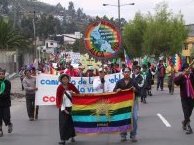
Utility corporations have used investor-state dispute settlement (ISDS) provisions found in trade and investment agreements to challenge state attempts to regulate privatized public services such as water, social security or other services.
In response to several governments which have tried to lower public services rates for poorer populations or in face of a significant economic crisis, foreign companies have initiated ISDS disputes, claiming they were treated “unfairly”, due to their loss of profits.
Potentially, any significant reforms of standards in relation to major infrastructure or utilities and associated services could be the target of ISDS.
As of end of 2019, about 2/3 of all ISDS disputes concerned the services sector at large, including public services but also financial services, telecommunications, transport, construction, etc.
Most well-known disputes include:
• Azurix (US) v. Argentina: US$165 million awarded in 2006 to the investor, a water company. The dispute arose from the contamination of a reservoir, which made the water undrinkable in the area. The firm claimed the government had expropriated its investment and denied the firm “fair and equitable treatment” by not allowing rate increases and not investing sufficient public funds in the water infrastructure (Argentina-US BIT invoked).
• Tampa Electric Company “TECO” (US) vs. Guatemala: the US-based energy company challenged Guatemala’s decision to lower the electricity rates that a private utility could charge. TECO was awarded US$25 million in 2013 (CAFTA invoked).
• TCW (US) vs. Dominican Republic: the US investment management corporation that jointly owned with the government one of the Dominican Republic’s three electricity distribution firms, sued the government for failing to raise electricity rates and to prevent electricity theft by poor residents. Case settled in 2009 for US$26.5 million paid to the investor (CAFTA invoked).
Photo: Aqua Mechanical / CC BY 2.0
(March 2020)







